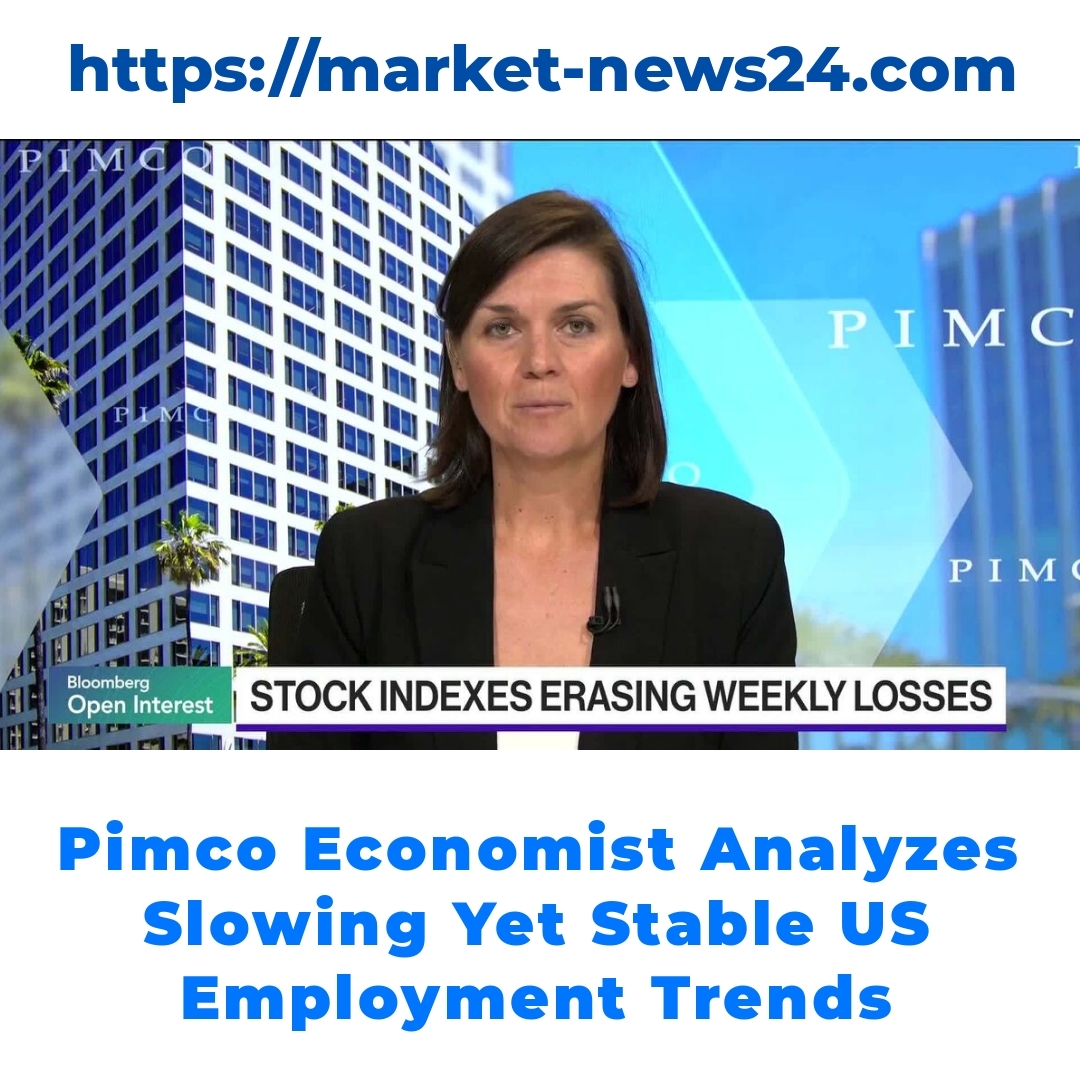The September US employment report offers crucial insights into the state of the labor market and overall economic health. Tiffany Wilding, a prominent voice in this discussion, sheds light on the implications of the report, emphasizing that while the US economy is slowing, it remains resilient, highlighting the importance of understanding these dynamics.


Tiffany Wilding Comments on the September US Employment Report
Tiffany Wilding’s insights on the September US employment report have created quite a buzz. During her appearance on Bloomberg Open Interest, she highlighted some key points that are essential for us to understand. Wilding asserted that while the US economy is indeed slowing down, it’s important to note that it’s not crashing. This feeling of cautious optimism is reflected in her statements, underscoring a sense of normalization in economic conditions.
Wilding emphasized that the economy is moving towards a more stable environment, rather than spiraling into turmoil. She mentioned, “We are seeing a normalization of economic conditions,” which is crucial for businesses and individuals looking to navigate these changing economic waters. Her commentary invites us to reflect on the broader implications of the employment report for the US economy as a whole.
Analyzing the Impact of the US Employment Report on the Economy
The September US employment report revealed some intriguing trends regarding job growth. For one, we are noticing shifts in hiring patterns, with certain sectors showing more resilience than others. The employment report helps us connect the dots between the current labor market trends and the overall economic picture.
Additionally, Wilding pointed out that while some areas face challenges, unemployment rates are still evolving in a way that, although gradual, shows improvement. Understanding these dynamics is essential for grasping how the labor market is adapting in a slowing economy. The implications of these trends can guide our expectations for the future.
Understanding Labor Market Trends
Delving into labor market dynamics, Wilding’s comments suggest a nuanced understanding of the current landscape. She notes that the employment report serves as a barometer for broader economic health, reflecting not just numbers, but the reality of people’s lives.
In her analysis, she mentioned that we should carefully watch the developments in job sectors that are historically viewed as stable. Predictions for future job growth are cautiously optimistic but warrant careful observation, especially given the backdrop of a decelerating economy. This raises questions about how well the labor market can adjust to these new conditions.
The Economic Outlook: Slowdown or Normalization?
Examining the economic slowdown as Tiffany Wilding articulated, we can gain a clearer picture of what lies ahead. She compared current economic conditions with historical trends, painting a portrait that reflects a transition rather than a crisis.
Wilding mentioned that what we’re witnessing may be more of a realignment of the economy rather than an outright downturn. By analyzing the employment report, she suggests that we might anticipate scenarios that vary from a mild slowdown to a normalization that brings stability. Understanding this spectrum can help businesses and policymakers make informed decisions moving forward.
Conclusion
To wrap up, Tiffany Wilding’s insights on the September US employment report shed significant light on the current state of the US economy. Her perspective emphasizes the importance of viewing this data through the lens of normalization rather than panic.
As we contemplate the future of labor market trends, the implications of the employment report are crystal clear—it’s more important than ever to stay informed about economic indicators. Keeping an eye on these developments can provide us with valuable insights into the US economy’s trajectory and help us navigate this complex landscape more effectively.
FAQ Section
What were Tiffany Wilding’s main points regarding the September US employment report?
Tiffany Wilding emphasized that the US economy is slowing but not crashing. She described the current economic conditions as normalizing, suggesting a shift towards stability rather than turmoil.
How does the September US employment report impact the job market?
The report highlights shifts in hiring patterns across different sectors, showing that while some areas are facing challenges, unemployment rates are slowly improving. This suggests that the labor market is adjusting to a decelerating economy.
What should we understand about labor market trends from Wilding’s comments?
Wilding noted that the employment report is a key indicator of economic health and reflects real-life impacts on people. She advised closely monitoring stable job sectors and understanding how they might evolve in response to economic changes.
Is the current economic slowdown a cause for concern?
According to Wilding, this slowdown should be viewed more as a realignment of the economy rather than a major crisis. She indicated that we might expect varying scenarios, from mild slowdowns to a stable normalization.
Why is it important to stay informed about economic indicators?
Staying informed about employment reports and other economic indicators is crucial for understanding the trajectory of the US economy. It helps businesses and policymakers make better decisions in response to changing economic conditions.





